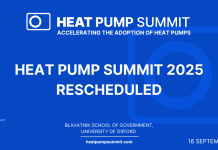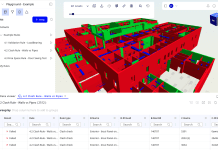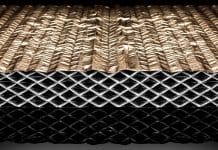Facing a perfect storm of the climate emergency, a building safety crisis, rising costs and supply chain disruption, many are increasingly looking to digitalisation and modern methods of construction. However, Lanre Gbolade, project director of the COLAB Consortium, believes there are entrenched barriers that must be overcome before real progress can be made
It’s been just under six years since the Modernise or Die report pointed out some of the deep-seated symptoms of failure in our industry. Although 2016 feels like a lifetime ago, there are still questions as to how much the industry has changed its course for the better.
While I believe there are promising signs, what’s clear is that in the years since the report’s issue, the challenges we face have only multiplied.
The climate emergency, brewing for decades, is now at the forefront of many companies ESG agendas. The building safety crisis is rightly where much investment is going. Brexit has led to rising costs and disruption to our labour and supply chains. And, of course, the coronavirus pandemic – all these factors come together to make a perfect storm for construction.
The government is increasingly looking to digitalisation and Modern Methods of Construction (MMC) as the solutions we need to overcome these challenges, but I still see entrenched barriers that hamper real progress and wide scale adoption.
Firstly, lack of collaboration is getting in the way of progress – particularly unhealthy competition and silo working.
Secondly, the lack of drive in the private sector for sustained investment in innovation. The industry might be perceived as willing to risk failure for the sake of doing things the same way we’ve always done.
Thirdly, I believe there is a lack of appreciation of the strategic integration of the key productivity enhancing solutions that are out there: Design for Manufacture & Assembly (DfMA), standardisation and construction technology applications.
The COLAB Consortium
These are exactly the issues that the Innovate UK-funded COLAB Consortium has been looking to address through its digital toolkit project over the last two years. We started in April 2020 with the aim of developing a digital solution which could support the industry increase its uptake of new approaches to building homes.
The roots of the project lie in L&Q’s MMC journey, which started in 2017 when a production innovation team was set up to look as far as possible into the future. We wanted to understand what we needed to manage an ambitious pipeline of MMC-led housebuilding, while providing increased design and delivery certainty for our teams. The result was COLAB.
COLAB is an interdisciplinary consortium of forward-thinking organisations at the cutting edge of innovation in the construction industry. As project director of COLAB, I’ve had the pleasure of leading this project on behalf of L&Q, alongside partners Virtual Viewing, HTA Design and Hawkins\Brown.

COLAB’s partners each have their own areas of expertise and we took collaboration to heart (our name being subtle reference to this!). We challenged ourselves from the outset to showcase the potential of digitalisation for the construction sector.
We know that DfMA and MMC approaches can help us speed up construction times while enabling the delivery of consistently high-quality homes. Our toolkit demonstrates how these methods can be used in practice with features including a DfMA Design Guide, Product Portfolio sample, a Geolocation Mapping tool, Business Intelligence metrics and much more.
Key to this is moving away from traditional project-specific solutions to building homes and towards a portfolio and product-based approach – adopting a manufacturing mentality.

As clients increasingly look to technology for solutions that create efficiencies, the COLAB digital toolkit can give them better-informed understanding of MMC and DfMA, and how they can take advantage of the latest developments to stay ahead of the curve.
We all appreciate climate change as the most pressing issue of our time, which must be addressed by the construction industry. Our toolkit empowers its users with the right data to help with this – including carbon metrics for offsite products. It signposts to required checks of project-wide environmental strategy and promotes design efficiency to ensure time, material and human resources are used responsibly right from the design stage.

We couldn’t have done this without the experience of our partners. HTA has extensive knowledge in DfMA and MMC, having worked on some of the largest MMC-led projects in the world. Hawkins\Brown are innovation leads in architectural design and technology, with a wealth of expertise and a record of championing quality and sustainability in the industry. Virtual Viewing has developed pioneering digital technology solutions for the construction sector for many years and is still pushing the boundaries with cutting-edge solutions. Their experience has been paramount in shaping the technology, UI and UX of the toolkit, making it a highly interactive and user-friendly application.
Bringing these different strands together hasn’t always been smooth but it has been rewarding. The diverse range of skills shared by our partners has helped us break down some of the barriers in our industry and achieve something we believe can be a game changer for the sector.
Looking to the future
The perfect storm our industry faces can seem overwhelming. But we can also see it as an opportunity to make changes that can change our sector for good.
The coronavirus pandemic forced the construction industry to speed up the pace of digitalisation. From construction workers on site to industry collaboration and placemaking, this has had a profound impact on the way we work – and there’s no reason to stop now.
The construction industry needs nothing short of a digital revolution to truly embrace the potential of DfMA methodologies and MMC portfolio thinking – from R&D and collaboration to skills investment. If we get this right, we can change the way we engage with design, procurement, manufacturing and build processes, delivering better performing homes at lower cost with greater efficiency. Ultimately, this is about building better homes, that enable people to live better lives.
This has been a fascinating journey for us – but it’s only just the start.
You can find out more about the DfMA Toolkit here.
COLAB DfMA Toolkit is an Innovate UK (UKRI) funded project. This funding is from the Transforming Construction Industrial Strategy Challenge Fund, part of the Construction Sector Deal.
Lanre Gbolade

Project director
COLAB Consortium
Twitter: @LQHomesMatter





![[Video] Fireco: 80 new fire doors required for residential flats in London](https://www.pbctoday.co.uk/news/wp-content/uploads/2025/04/2024-06-01-Lords-view-one_1200x750_004-218x150.webp)








